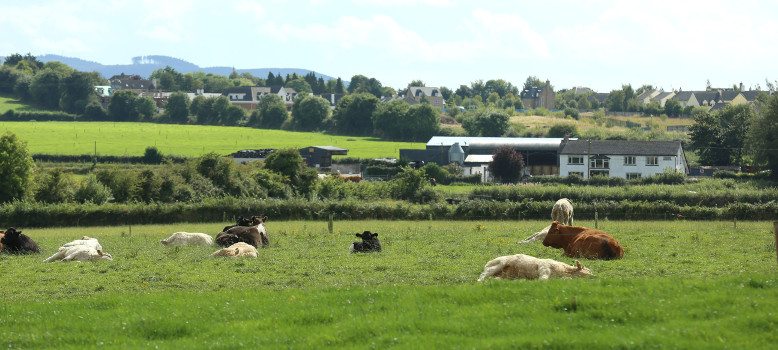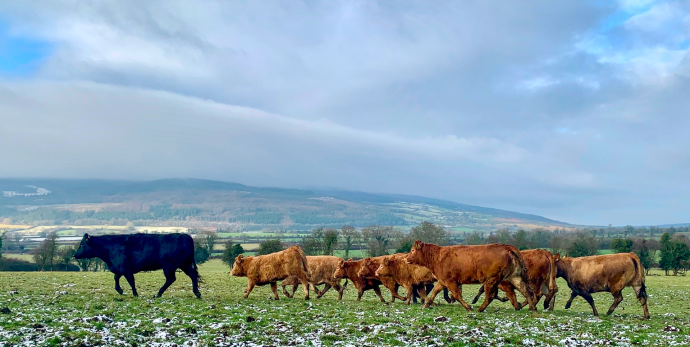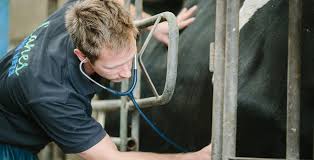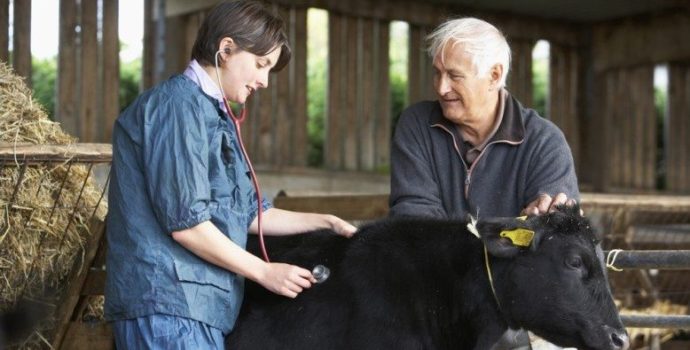Animal Health Reports
Animal Health Council Report November 2024

TB Update
- TB Levels: TB levels are continuing to increase with 12 month rolling averages rising month on month. In the past year herd incidence has increased by 1.04%, the number of restricted herds by 992 and reactor numbers have increased by 12,758.
- Wildlife programme: IFA has called for a reversal of the badger vaccination programme to address the unacceptable increase in the numbers of TB reactors. IFA has met with senior DAFM officials on the issue and highlighted the corelation between vaccination areas and high levels of TB in cattle. Lack of resources in implementing an effective wildlife control programme is a significant contributor to the increases in TB in cattle.
- TB Controls: DAFM have suggested increased controls on higher risk breakdown farms, IFA has rejected any additional controls on farms and called on DAFM to address the shortcomings in the wildlife control programme both in terms of policy and resources.
- Administrative delays: The new rate of income supplement payments is being paid to farmers who enter a breakdown since 29th February 2024. The top up to the old rate of payments farmers received since 1st February 2023 has not yet commenced. IFA has again raised this unacceptable delay with DAFM resulting in 1300 eligible farmers receiving written confirmation from DAFM in mid-October of monies owed. DAFM are targeting all payments to be processed by the end of the year. IFA continue to call for prompt payment of supports and administrative processing of TB outbreaks.
- Support payments: IFA as part of the TB FWG, are involved in discussions on reviewing several aspects of TB supports, including the recent change to EBI price coefficient which DAFM reduced from €1.05/€ EBI to 75c/€ EBI, a review of OFMV categorisation and summary price compilation and the Income Supplement, Hardship Grant and Depopulation Grant schemes.
- TB Communications: Work has commenced in the TB Communications group on reviewing the tone of letters sent to farmers as part of the TB programme. The current letters are very intimidating and threatening to farmers and must be reworded.
- TB Forum: The latest TB Forum meeting had a presentation from researchers in UCD which clearly showed the impact of Badger disturbance from clear felling and its correlation with TB spread in cattle subsequently in the vicinity.
- Irish Deer Management Strategy Group: The IDMSG has issued a tender to employ a manager to implement the strategy of deer reduction, seven other staff will be hired following the hiring of the manager. IFA are calling for meaningful actions from the group this Autumn.
IFA Position
- The Wildlife Control Programme must revert to density reduction around all TB outbreaks
- DAFM must provide the staff resources to implement density reduction programmes in a timely and effective manner;
- Around all TB outbreaks and
- In advance of all major infrastructural works
- Any additional animal movement controls must be practical, proportionate and proven to make a meaningful difference to TB levels
- The impact of TB controls on farms must be recognised and the economic impact fully supported
- DAFM must continue to engage in the development of a marker vaccine for cattle
- DAFM must up their game in implementing the programme on the ground and in their communications with restricted farmers
- The Deer Strategy Group must be fully funded to establish DMU’s where necessary to reduce deer densities
- IFA are holding a number of county and regional meetings on TB throughout the country
Budget 2025
- There has been an additional €10 million allocation for Animal Health measures announced in Budget 2025 for BVD, IBR and TASAH’s. IFA have called for this funding allocation to be primarily used to pay the cost of BVD testing in 2025
- IFA continue to call for the removal of VAT on vaccines which was a missed opportunity in the budget.
- An additional €10m has been allocated to the TB programme.
BVD
- We are currently on track to obtain BVD free status under EU Animal Health Law. On attainment of BVD Free Status, vaccination for BVD would be prohibited with proof of freedom testing required.
- To-date there have only been 376 initial test positive calves born in 169 herds.
- The IFA position on the BVD programme remains unchanged;
- The progress achieved to-date must be protected;
- The proof of freedom testing must be an effective early case detection screening, tissue tag testing of calves at birth is the most effective approach in this regard.
- We must continue to have access to vaccination for BVD
- The Minister must come forward with funding to cover the costs associated with testing in the proof of freedom phase of the programme estimated to be €7.5 million.
- DAFM currently provide €2.40 for 25 tests per farm.
Latest BVD Figures – Maps
BVD Figures Table
IBR
- A proposed program by AHI includes a cost of €40 million per year and a 16-year timeline for achieving eradication, along with movement controls on farms.
- The impact of IBR on dairy farms has been estimated at €88 million per year, with no assessment conducted for suckler and beef farms.
- The funding model remains a critical issue to be addressed in order to advance the programme.
- The move to include IBR testing in the NBWS has seriously undermined the efforts to develop a programme.
- IFA, at the last IBRIG called for the Minister for Agriculture to come forward with clear direction on IBR, including a funding model and responsibilities for development of the programme.
- The failure to provide adequate funding for the BVD programme by the Minister despite farmers investing almost €120m has severely hindered the development of the IBR programme
- IFA will not agree an IBR programme until a funding model for the programme is developed and agreed that reflects all the beneficiaries of a National Programme
Johnes
- Phase two of the Johnes Control programme ended in 2023
- IFA are currently engaging with other stakeholders to develop a funding model for the next phase of the programme and to close out the last phase of the programme.
Veterinary Medicines
The Minister for Agriculture has signed the SI
- It is to come into effect in June 2025 for Antiparasitic products
- Until then Antiparasitic products can continue to be purchased without prescription
Background;
- Antiparasitic products became Prescription only Medicines following the publication of the EU Veterinary Medicines Regulation in 2019 and subsequent HPRA review of these products.
- Prior to this Ireland were the only country in the EU where these products were not POM’s
- The SI provides for vets on behalf of licenced merchants and Co-ops to prescribe for these outlets on completion of a Proper Assessment Protocol
- The farmers own vet will continue to prescribe based on their knowledge of the farm, and the animals on it as is current practice.
- There is a missed opportunity to broaden the supply base for farmers sourcing vaccines that are categorised as POM(E) medicines.
- These products have always been available only through veterinary pharmacies and vets without the need for a prescription and will continue to be available through these outlets.
- The validity period for Prescriptions for non-antimicrobial products has been set at 6 months
Availability of Vaccines – Issues continue with the availability of some key animal vaccines.
Fallen Animals
- EU Regulation requires the Department of Agriculture to provide the infrastructure for farmers to meet their legal obligations in relation to fallen animal disposal
- The current infrastructure provided by DAFM does not provide a guaranteed collection service for all farmers in the country and fails to have a competitive cost structure for the service. Despite
- DAFM providing direct subvention to Fallen Animal Collectors under a scheme that has maximum fees allowable to be charged to farmers DAFM have no inspection system in place for compliance with this requirement.
- As was seen last December in the dispute between knackeries and renderers the current system is failing to deliver on its objectives through a combination of Department of Agriculture failures in the construct of the system and oversight of the subvention criteria.
- The entire fallen animal disposal system must be reviewed and the most efficient system that delivers guaranteed collection of fallen animals to all farmers in the country at competitive rates provided.
BTV Update
BTV-3 update 01/11/2024 UK
- Following the identification of a case in cattle on the Leicestershire and Warwickshire border, the restricted zone was extended on 1 November 2024 to include part of Warwickshire.
- The zone now covers Bedfordshire, Berkshire (part), Buckinghamshire, Cambridgeshire, City of Kingston upon Hull, East Riding of Yorkshire, East Sussex, Essex, Greater London, Hampshire (part), Hertfordshire, Kent, Leicestershire (part), Lincolnshire, Norfolk, Northamptonshire, Nottinghamshire, Suffolk, Surrey, Warwickshire (part) and West Sussex.
- Import of live ruminants from Great Britain continue to remained suspended.
Bluetongue virus continues to spread across mainland Europe.
- Importers of livestock from mainland Europe must be aware that due to continued spread of disease to new areas, livestock purchased may find themselves in a situation where they cannot be certified for movement to Ireland due to their inability to meet the relevant certification requirements.
- The Department will not pay compensation for animals infected by imported germinal products, nor for imported animals which subsequently test positive for bluetongue in the post entry sampling.
- A new serotype, bluetongue serotype-12 (BTV-12) has been detected in The Netherlands. Genetically, it is unrelated to BTV-3. The origin of BTV-12 is currently unknown.
Bluetongue is a notifiable disease; Any suspicion of disease must be reported to the local Regional Veterinary Office (RVO) without delay
- The BTV 3 virus circulating in Europe and the UK is causing huge issues for farmers particularly in terms of animal movement restrictions but also from an animal health perspective in these countries.
- Ireland so far has remained free from the disease and as a result we are benefiting from additional markets for our live exports because of the restrictions for the disease in EU countries that ordinarily supplied these markets.
- This strain of the Bluetongue Virus is causing huge trade disruption for farmers within the 150km restriction zones, with all live exports prohibited due to the fact there is currently no licensed vaccine for this strain.
- IFA have raised the seriousness of this issue with the Taoiseach Simon Harris and as farmers we should do everything in our power to prevent the introduction of the disease to this country as the loss of live exports and trade restrictions in a 150km radius of an outbreak would impact on a huge portion if not all of the country.
- As farmers, we must ensure we are acting responsibly and with vigilance to protect our animals and the island of Ireland from the introduction of this disease.
- IFA and the UFU have previously called on all farmers to pause the import of live animals until the risk of introduction abates to protect the island of Ireland from the virus.
- Given the serious implications for farmers if the disease was to enter the country it is important we remain vigilant and report any suspected cases to the Department of Agriculture and continue to be acutely aware of the risk of importing animals to this country at this critical time.
- At a minimum import of susceptible animals should be paused until the vector activity drops and the risk of introducing the disease reduces.




